- Home
- Charles L. Grant
Symphony - [Millennium Quartet 01]
Symphony - [Millennium Quartet 01] Read online
* * * *
Symphony
[Millennium Quartet 01]
By Charles Grant
Scanned & Proofed By MadMaxAU
* * * *
Part 1
Brass and Violins
* * * *
1
1
T
he night was made for werewolves.
A newly full moon washing color from the ground and stars from the sky, not bright enough to read by, but bright enough for shadows to spread and grow an edge.
A steady silent wind riding down the slopes, skating across the high desert, not sand but dust and dirt, low brush, barren arroyos, a stubborn twisted tree whose roots had found water and refused to let it go. A coyote trotting across a two-lane road, tail dragging, eyes dull. The shed skin of a rattler, dead white in the moonlight, fluttering on a flat rock. White bones, tiny bones, trembling in a ditch.
The temperature cold enough for March.
Dark between the mountains.
No lights at all.
* * * *
2
Sunday, just shy of midnight.
A woman sat on a lawn chair, the chair on a square of cracked concrete outside the dented door of a trailer resting on cinder blocks and wood, fifty yards from a narrow paved road hardly anyone ever used. She wore scored boots and worn jeans, flannel shirt, and an open denim jacket lined with fleece. Long black hair pulled severely to the back, covering her ears, carelessly bound with a rawhide strip. A lean face with angles where once there had been curves.
In her right hand, a cigarette; in her left, a .45, Army issue and loaded.
She had been waiting every night for nearly a month, sitting, smoking, sometimes drinking coffee, sometimes drinking beer. Watching the road that shot down from the north, passed her by, heading straight for Albuquerque, who-gave-a-shit-how-many miles away.
If she was lucky, she’d never see it again.
If she was really lucky, the Anglo who had brought her out here with flowers and candy and words just as sweet, with hands that knew her before they even touched her, would come back with his little boy expression: forgive me, Lupé, I’ve been a total jerk.
When he did, she would kiss him, maybe even let him touch her, then put a bullet between his eyes.
She wasn’t often a fool, but this man had done it to her. Gold, he had said, and maybe a little silver, some pure-strain turquoise. He had the maps to prove it, and signed papers from assayers and a professor at the university and a surveyor who swore that any claim would be theirs, the government couldn’t touch them.
A long shot, the man had told her, being honest, kissing her throat; but what else, he wanted to know, did they have going for them these days? His low-level job at Sandia was precarious at best, and she had just been laid off.
Pool the money, get the trailer, hit the road, dig the mine, and even in horse races long shots sometimes won.
He didn’t hit her the first night, or even that first week.
But when the snows came, and the gold didn’t, the isolation broken only by a small TV and a crackling radio, he drank a bottle of discount bourbon and nearly broke her jaw crying out at his rotten luck. She didn’t forgive him, but she knew how drunken men behaved when their women tried to fix them and the world didn’t care, didn’t do what they dreamed.
She knew it was the way her mother had died.
But his hands were too good, and his lies were too good, and she had dug through the rock and watched the snow and waited for spring, and when he came out of the shaft four weeks ago and threw the pick and shovel as far away as he could, she knew they were beaten.
Only in movies did two amateurs strike it rich.
He was sober that night.
He hit her that night.
When she woke up. he was gone, with the money and the car and the TV and the cheap stereo and half the food and all the liquor.
When she healed, when she could walk again without sobbing, she considered standing down there by the road, to hitch a ride to anywhere but here. With nothing left, she had nothing to lose, and she could probably pick up something in the city; the pay wasn’t important, just as long as it fed her until she found another way.
That was the last time she had cried, shaking her head at the boulders, at the scrub brush, at the birds that wheeled too high overhead. When the tears stopped, when God didn’t speak to her or send her a sign, she plopped the lawn chair onto the concrete square and spent the first afternoon cleaning the gun, the second afternoon practicing her aim, and every afternoon and evening after that, waiting.
She was patient. Very patient. Sooner or later he would grow curious. Sooner or later, he would wonder about her, wonder if he could get anything for the trailer, for what was left inside, and he would come back.
He would die.
She shivered a little and drew her chin toward her chest, lay the gun in her lap and smoothed her hair back over her ears. She wasn’t afraid of him, or of pulling the trigger; she wasn’t even all that angry anymore.
The waiting, and the killing, had become something she had to do.
She stared at the gun, and felt nothing; she looked up at the moon, and a coyote bark-howled somewhere in the distant dark.
A corner of her mouth pulled back in a crooked smile.
You and me, amigo, she thought; you and me until it’s over.
The first thing she would do after getting out of this place would be to find a judge to change her name; and if she couldn’t find a judge, she’d damn well do it anyway.
Lupé, for Christ’s sake.
At school they called her “Loopy.”
But Lupé Valez had been a movie star long before Lupé Viejo was born, and her mother had insisted the name would bring her good fortune.
It brought her “Loopy” and a battered face and a battered soul and a .45 in her lap, that’s what the hell it had brought her.
It had brought her mother a broken neck, and her father life without parole in the state prison, up near Santa Fe.
She flicked the cigarette away, watched the flailing sparks, and lifted her face to the slow coasting wind. Smelling spring. Smelling green. Smelling twenty-six years slide away into the dark.
She smiled and closed her eyes.
Aw, poor niña, she whispered without making a sound; poor little thing, feeling sorry for yourself? He hit you and you stayed, he hit you again and you stayed, he hit you and said things and hit you again and you stayed, and for this you want someone to feel sorry for you?
Stupid bitch.
Grow up.
Get a life.
The coyote called again, farther away.
She lit another cigarette, yawned, coughed, and saw the headlights.
They came out of the mountains, stabbing the sky, raking the brush-and-rock hillsides where no one lived but her.
She listened for the engine, but couldn’t hear it for the wind.
When she stood, she cursed. Her knees were weak and stiff, her stomach jumping, and a shudder stiffened her spine, as if an ice cube had touched her neck.
She crushed the cigarette out beneath her boot, grinding it, kicking it away, and set the gun against her leg as she walked down to the road, watching the lights steady, hearing the engine at last, eyes widening when she realized how fast the car moved, stopping and ready to turn when it stopped, too, without pulling out of its lane.
It was long, it had to be old, they sure didn’t make them like that anymore, but she couldn’t tell the color because the moon took it all away.
The passenger door opened.
A woman’s voice said, “Lupé, you’ll catch your death out there. Come in
and sit a while.”
The soft sound of a hand patting the seat.
There was no reason in the world why she should, but it was a relief to hear someone’s voice besides her own. She got in, but caution kept the door open, one foot on the ground, catching her breath at the soft leather, staring at the driver, who didn’t look at her. All she could tell was that the woman had short hair, not very dark; the shadows and dim dashboard light played games with the rest.
“You want a ride?”
Lupé didn’t, she had things to do, but to be polite, she said, “Where?”
The woman laughed softly, quickly, her hands sweeping around the beveled steering wheel. “Lots of places.”
“I don’t think so, thanks.”
“It’ll be better than sitting out here, talking to the coyotes and bugs.”
Lupé glanced into the backseat, saw nothing at all but the red glow of the taillights. Kind of like fire; kind of like blood. “Do I get paid?”
“In a way.”
Lupé rolled her eyes. “Meaning?”
The woman pointed at the gun. “Well, you might get to use that once in a while.”
Lupé almost laughed. She’d been too long in this place, too long without seeing anyone but the man she wanted to kill, too long without listening to a single note of music except the songs she tried to sing in a voice that sounded on a good day as if she had a vicious sore throat.
Stir crazy, that’s what she was. Maybe just plain crazy.
Coyotes and moonlight will do that to a woman.
The driver turned her head.
Dashboard glow, shadows shifting, and Lupé felt a sharp hitch in her lungs, a whisper of ice. She braced herself to run, stomach jumping again, her mouth open, her fingers tightening around the gun.
“Jesus,” was all she could say.
The woman leaned away, just a little, and Lupé rubbed a hand quickly over her face.
Stir crazy, nothing; Jesus, I’m worse off than I thought.
“What did you see?” the woman asked, amused but not unkindly. “A ghost?”
Lupé grinned, feeling stupid. She didn’t mind answering: “No, no ghost.” She patted the flat of her chest to calm herself.
“What, then?”
“It’s dumb.”
The woman waited, the question clear and unasked.
“Okay.” Lupé shrugged; what the hell, you’re crazy, right?
“One of them things, you know? Like in the movies: Wolf. Werewolf. You know what I mean?”
“Sure.” The driver faced front and gripped the wheel, fingers flexing slowly. “Close the door, Lupé. Please? It’s too chilly out there.”
That’s not what she meant, and Lupé stared at the trailer, dull even in starlight, and saw the lawn chair, and the concrete square, and the nights waited and waiting.
He’s not coming, you know. You can stay here until you fry, but he got what he wanted, and he’s not coming back.
Still, there was a long hesitation before she pulled in her leg and closed the door, and the car moved away so smoothly she was hardly aware that she was gone.
“This is nuts,” she muttered, suddenly conscious of the gun and not knowing what to do with it and so tucked it beneath her right leg.
A crooked mile passed, warmth and silence.
“Where are we going?”
The woman shifted. “East.”
Lupé stared out the windshield. “East? But—”
“Anytime you want to leave, just say the word, and I’ll stop.” A low chuckle. “Not in the middle of the desert, either, by the way. Or the mountains, for that matter. You won’t be abandoned, just let off.”
For no reason in the world, Lupé believed her.
Another mile or two, taking roads she hadn’t known were there.
“So why east?” she asked, stifling a yawn. “Why not west? California.”
“There’s someone we have to see.”
“He know we’re coming?”
She sensed a smile when the woman answered, “I don’t think so, no.”.
She leaned back then, her eyes half closed, her left hand slowly unbuttoning her jacket. The tension that cloaked her began to shred; the questions she had didn’t seem too important anymore. It was crazy, but what the hell, it was, like the woman said, better than talking to the coyotes and bugs. And it wasn’t as if she couldn’t take care of herself. The lady tried anything, she always had the gun, and the knife in her boot, and her fists.
Digging had made her strong; hating had made her stronger.
The moon coasted, and the automobile raced.
Suddenly the woman said, “Werewolf,” and exploded into laughter, head back, rocking side to side.
Lupé watched the road leap at her from the dark, the mountains blacker than she had ever seen them.
The laughter faded.
The laughter died.
“Okay, I’m sorry, okay?” Lupé snapped, anger deepening her voice.
“Oh, don’t be sorry, please.” A hand touched her leg, tapped it once, an apology. “It’s my fault. I shouldn’t have laughed.”
Lupé said nothing.
“The thing is, hon, by the time this is over, you’ll probably wish I was.”
* * * *
3
Violins nudged her close to awakening, the menace of deep horns lurking behind. She opened her right eye, but not very much, she wanted to keep sleeping as long as she could, and through the tinted window saw the flat of the desert, and a mesa midway to the horizon, bleeding in first light.
The music played on.
She wasn’t sure what it was; it sounded familiar, maybe something one of her grade school teachers used to play, to wean them away from bubblegum rock.
The eye closed.
“Hey,” she said, her throat a little dry.
“We’ll be stopping for breakfast soon. Sleep. You deserve it.”
“No problem. But... you have a name?”
Tires hummed; violins and cellos.
“Susan.”
The left eye opened, half expecting to see a kid, or a crone in pearls and furs.
What it saw was a woman with light brown hair short and smooth and straight to her shoulders, large eyes, small mouth; a plaid shirt, and sleeves rolled halfway to the elbows, jeans, tennis shoes. No jewelry and no furs and no watch.
“No werewolf,” Susan said with a lopsided grin.
Lupé grinned back and closed the eye, drifting and sinking, listening to the violins.
* * * *
4
“After we eat, then what?”
“East, remember?”
“Last I heard, there was a heat wave going on. Couldn’t we go someplace cool?”
“Like Alaska?”
“Yeah. That sounds okay to me.”
“Sorry. We’re going east.”
‘‘ Straight through, huh?”
“Oh, no, there’re a few stops along the way.”
“More people?”
“That’s right.”
“We gonna party?”
“Not quite, dear, not quite.”
* * * *
2
1
T
he heat slipped in with June barely started, tolerable at first, nothing special, it was summer, until it began to climb.
A degree a day.
Taking its time.
By the end of the first week, night and day were little different. Moon and sun were white, all color gone.
By the end of the tenth day, nobody cared that records had been broken, that water was scarce, that brownouts swept the state, the whole Northeast, like lightning-set brushfires, that earthquakes and floods tore at other parts of the world.
Nobody cared.
There was only the heat.
It turned streets to treadmills and steps to endless mountains; muscles drained and lungs strained and infrequent patches of unmoving shade became places to stand in and stare blindly and gasp.

![[Oxrun Station] The Orchard Read online](http://i1.bookreadfree.com/i/03/17/oxrun_station_the_orchard_preview.jpg) [Oxrun Station] The Orchard
[Oxrun Station] The Orchard![Riders in the Sky - [Millennium Quartet 04] Read online](http://i1.bookreadfree.com/i/03/20/riders_in_the_sky_-_millennium_quartet_04_preview.jpg) Riders in the Sky - [Millennium Quartet 04]
Riders in the Sky - [Millennium Quartet 04]![Chariot - [Millennium Quartet 03] Read online](http://i1.bookreadfree.com/i/03/19/chariot_-_millennium_quartet_03_preview.jpg) Chariot - [Millennium Quartet 03]
Chariot - [Millennium Quartet 03]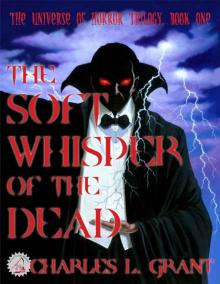 The Universe of Horror Volume 1: The Soft Whisper of the Dead (Neccon Classic Horror)
The Universe of Horror Volume 1: The Soft Whisper of the Dead (Neccon Classic Horror)![[Oxrun Station] Dialing The Wind Read online](http://i1.bookreadfree.com/i/03/19/oxrun_station_dialing_the_wind_preview.jpg) [Oxrun Station] Dialing The Wind
[Oxrun Station] Dialing The Wind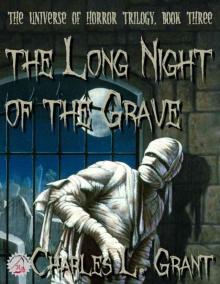 The Universe of Horror Volume 3: The Long Night of the Grave (Neccon Classic Horror)
The Universe of Horror Volume 3: The Long Night of the Grave (Neccon Classic Horror)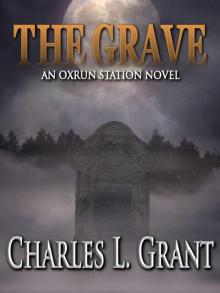 The Grave - An Oxrun Station Novel (Oxrun Station Novels)
The Grave - An Oxrun Station Novel (Oxrun Station Novels)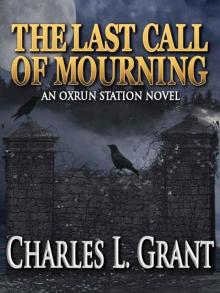 The Last Call of Mourning - An Oxrun Station Novel (Oxrun Station Novels)
The Last Call of Mourning - An Oxrun Station Novel (Oxrun Station Novels)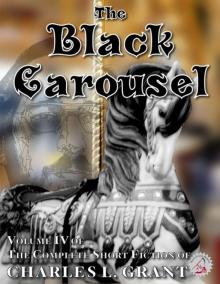 The Complete Short Fiction of Charles L. Grant, Volume IV: The Black Carousel
The Complete Short Fiction of Charles L. Grant, Volume IV: The Black Carousel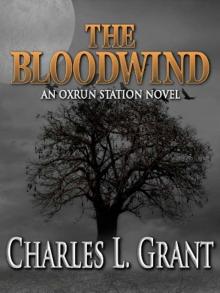 The Bloodwind - An Oxrun Station Novel (Oxrun Station Novels)
The Bloodwind - An Oxrun Station Novel (Oxrun Station Novels)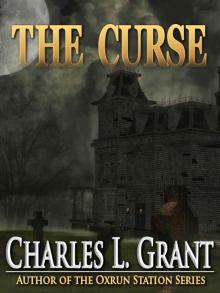 The Curse
The Curse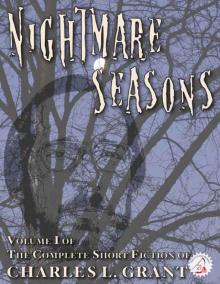 The Complete Short Fiction of Charles L. Grant Volume 1: Nightmare Seasons (Necon Classic Horror)
The Complete Short Fiction of Charles L. Grant Volume 1: Nightmare Seasons (Necon Classic Horror)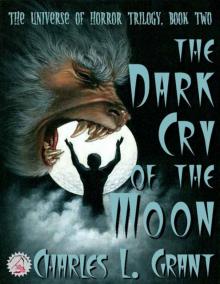 The Universe of Horror Volume 2: The Dark Cry of the Moon (Neccon Classic Horror)
The Universe of Horror Volume 2: The Dark Cry of the Moon (Neccon Classic Horror)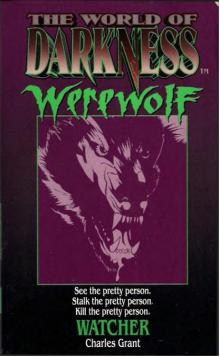 Watcher: Based on the Apocalypse (World of Darkness : Werewolf)
Watcher: Based on the Apocalypse (World of Darkness : Werewolf)![[Oxrun Station] The Bloodwind Read online](http://i1.bookreadfree.com/i/03/25/oxrun_station_the_bloodwind_preview.jpg) [Oxrun Station] The Bloodwind
[Oxrun Station] The Bloodwind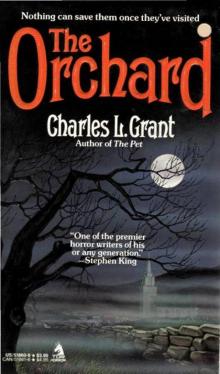 The Orchard
The Orchard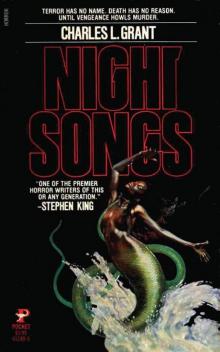 Night Songs
Night Songs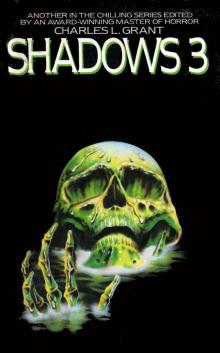 Shadows 3
Shadows 3![Symphony - [Millennium Quartet 01] Read online](http://i1.bookreadfree.com/i1/04/02/symphony_-_millennium_quartet_01_preview.jpg) Symphony - [Millennium Quartet 01]
Symphony - [Millennium Quartet 01] The Hour of the Oxrun Dead (Necon Classic Horror)
The Hour of the Oxrun Dead (Necon Classic Horror)![In the Mood - [Millennium Quartet 02] Read online](http://i1.bookreadfree.com/i1/03/31/in_the_mood_-_millennium_quartet_02_preview.jpg) In the Mood - [Millennium Quartet 02]
In the Mood - [Millennium Quartet 02]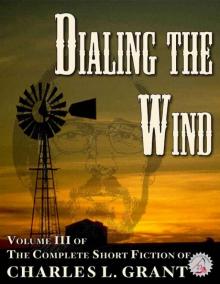 The Complete Short Fiction of Charles L. Grant Volume 3: Dialing the Wind (Neccon Classic Horror)
The Complete Short Fiction of Charles L. Grant Volume 3: Dialing the Wind (Neccon Classic Horror)![[Oxrun Station] The Last Call of Mourning Read online](http://i1.bookreadfree.com/i2/04/05/oxrun_station_the_last_call_of_mourning_preview.jpg) [Oxrun Station] The Last Call of Mourning
[Oxrun Station] The Last Call of Mourning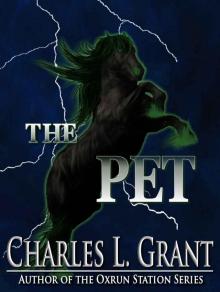 The Pet
The Pet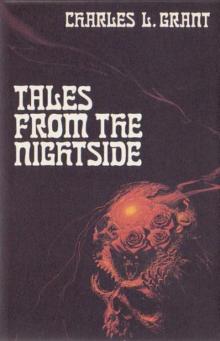 Tales from the Nightside
Tales from the Nightside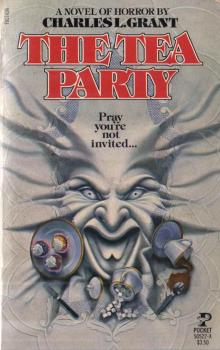 The Tea Party - A Novel of Horror
The Tea Party - A Novel of Horror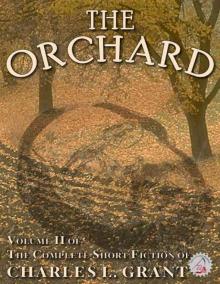 The Complete Short Fiction of Charles L. Grant Volume 2: The Orchard (Necon Classic Horror)
The Complete Short Fiction of Charles L. Grant Volume 2: The Orchard (Necon Classic Horror) Whirlwind
Whirlwind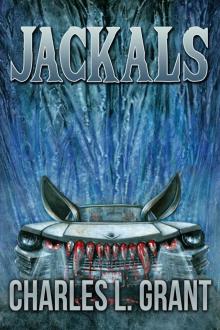 Jackals
Jackals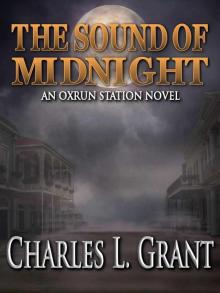 The Sound of Midnight - An Oxrun Station Novel
The Sound of Midnight - An Oxrun Station Novel